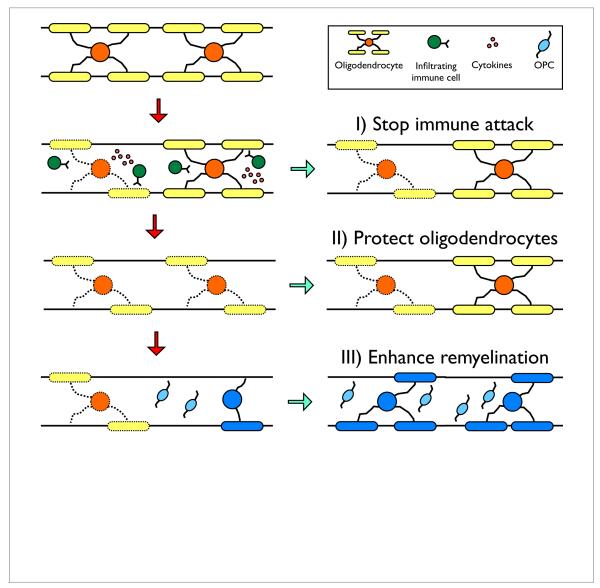Figure 1.
Three therapeutic targets for combinatorial treatment strategies for multiple sclerosis. In the experimental autoimmune encephalomyelitis model of MS, CNS-infiltrating, autoreactive CD4+ T cells secrete cytokines that activate resident and infiltrating inflammatory immune cells leading to oligodendrocyte damage. The release of myelin antigens perpetuates the inflammatory process and subsequent oligodendrocyte destruction. The CNS is capable of significant regeneration. Endogenous oligodendrocyte progenitor cells (OPCs) proliferate, migrate to sites of inflammation, and differentiate to synthesize new myelin sheaths. To improve clinical outcome of MS patients we present three principal approaches: 1) halt pathologic immunity ideally by inhibiting antigen-specific responses rather than employing generalized immunosuppression, 2) protect oligodendrocytes from further damage, and 3) enhance remyelination either by transplanted exogenous cells or promote repair via endogenous OPCs.

